|
Sina Alemohammad I am currently a postdoctoral fellow in the VITA Group at the University of Texas at Austin, working under the mentorship of Prof. Atlas Wang. I earned my Ph.D. in Electrical and Computer Engineering from Rice University, where I was advised by Prof. Richard Baraniuk and was honored with the Ken Kennedy Fellowship. My research centers on the theory of deep learning and the development of generative models. |

|
ResearchRecent advances in generative modeling have led to a widespread rise in synthetic data across online content. As a result, it has become increasingly common, intentionally or unintentionally, for newer models to be trained on data generated by earlier ones. In my research, I introduced the concept of Model Autophagy Disorder (MAD), a phenomenon that occurs when models repeatedly rely on their own synthetic outputs. This feedback loop gradually degrades the realism and diversity of the generated data, causing a drift away from the true data distribution, even when real data remains available.
My current research is centered on understanding and preventing MAD in generative models. I am particularly interested in developing strategies that enable models to self-improve using synthetic data without falling into the pitfalls of self-consuming feedback. This involves designing systems that can harness the benefits of synthetic training signals while preserving alignment with real-world data distributions. More broadly, my interests include deep learning theory, generative modeling, and sparse signal processing. My works has been featured in multiple news sources, e.g., The New York Times, New Scientist, Futurism, The Telegraph, Yahoo!finance, Fortune, Times of India, Sciencedaily, France 24, and Montreal AI Ethics. |

|
Neon: Negative Extrapolation From Self-Training Improves Image Generation
Sina Alemohammad, Zhangyang Wang, Richard Baraniuk arXiv, 2025 arXiv / code We introduce a simple post-hoc method that improves generative models by fine-tuning on synthetic data and then reversing the degradation direction. Neon achieves state-of-the-art FID of 1.02 on ImageNet-256 with only 0.36% additional compute by exploiting the predictable anti-alignment between synthetic and population (infinite) real data gradients caused by mode-seeking samplers. |
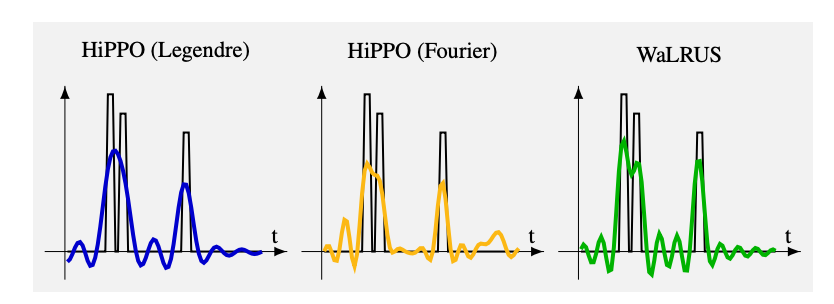 
|
WaLRUS: Wavelets for Long-range Representation Using SSMs
Hossein Babaie, Mel White, Sina Alemohammad, Richard Baraniuk arXiv, 2025 / arXiv We introduce a novel approach that integrates wavelet transforms with state-space models to effectively capture long‑range dependencies in sequences. |
 
|
Safari: State-space models for frame-agnostic representation
Hossein Babaie, Mel White, Sina Alemohammad, Richard Baraniuk arXiv, 2025 / arXiv We present SaFARi, a frame‑agnostic extension of state‑space models that generalizes HiPPO to support any functional basis, enabling flexible and efficient long-range sequence representation. |
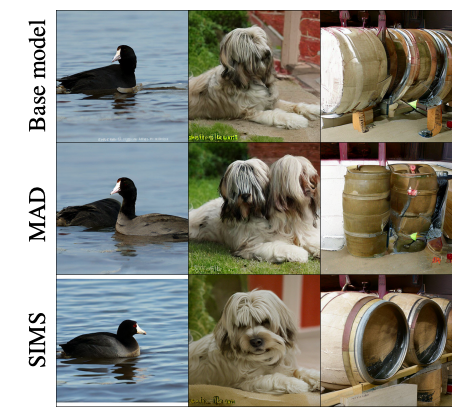 
|
Self-improving diffusion models with synthetic data
Sina Alemohammad, Ahmed Imtiaz Humayun, Shruti Agarwal, John Collomosse, Richard Baraniuk arXiv, 2024 / arXiv This work introduces SIMS, a novel training framework that uses a model’s own generated synthetic data as negative guidance to improve diffusion model performance while preventing model collapse—or “model autophagy disorder” (MAD). The method outperforms prior approaches by setting new Fréchet Inception Distance (FID) records on CIFAR‑10 and ImageNet‑64, and enables controlled bias adjustments in the synthetic data distribution |
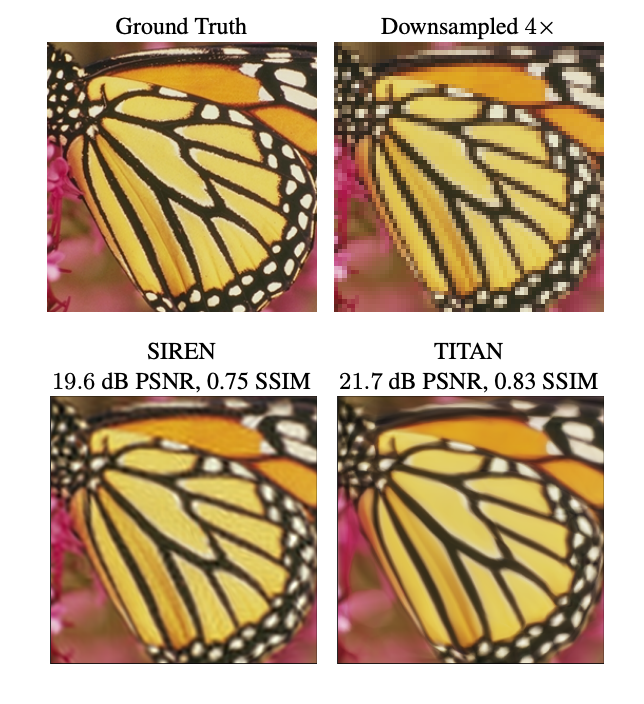 
|
Titan: Bringing the Deep Image Prior to Implicit Representations
Lorenzo Luzi Daniel Lejeune Ali Siahkoohi, Sina Alemohammad, Vishwanath Saragadam, Hossein Babaie, Naiming Liu, Zichao (Jack) Wang, Richard Baraniuk ICASSP, 2024 / arXiv We introduce TITAN, which enhances implicit neural representations by integrating deep image priors via a residual deep decoder, significantly improving interpolation quality in super-resolution and CT applications. |
 
|
An Adaptive Tangent Feature Perspective of Neural Networks
Daniel Lejeune Sina Alemohammad, CPAL, 2024 / arXiv We propose a framework that allows tangent features to adapt during training—equivalent to structured regularization—and demonstrate this adaptivity yields significantly lower sample complexity and better kernel alignment than fixed-feature models on MNIST and CIFAR‑10. |
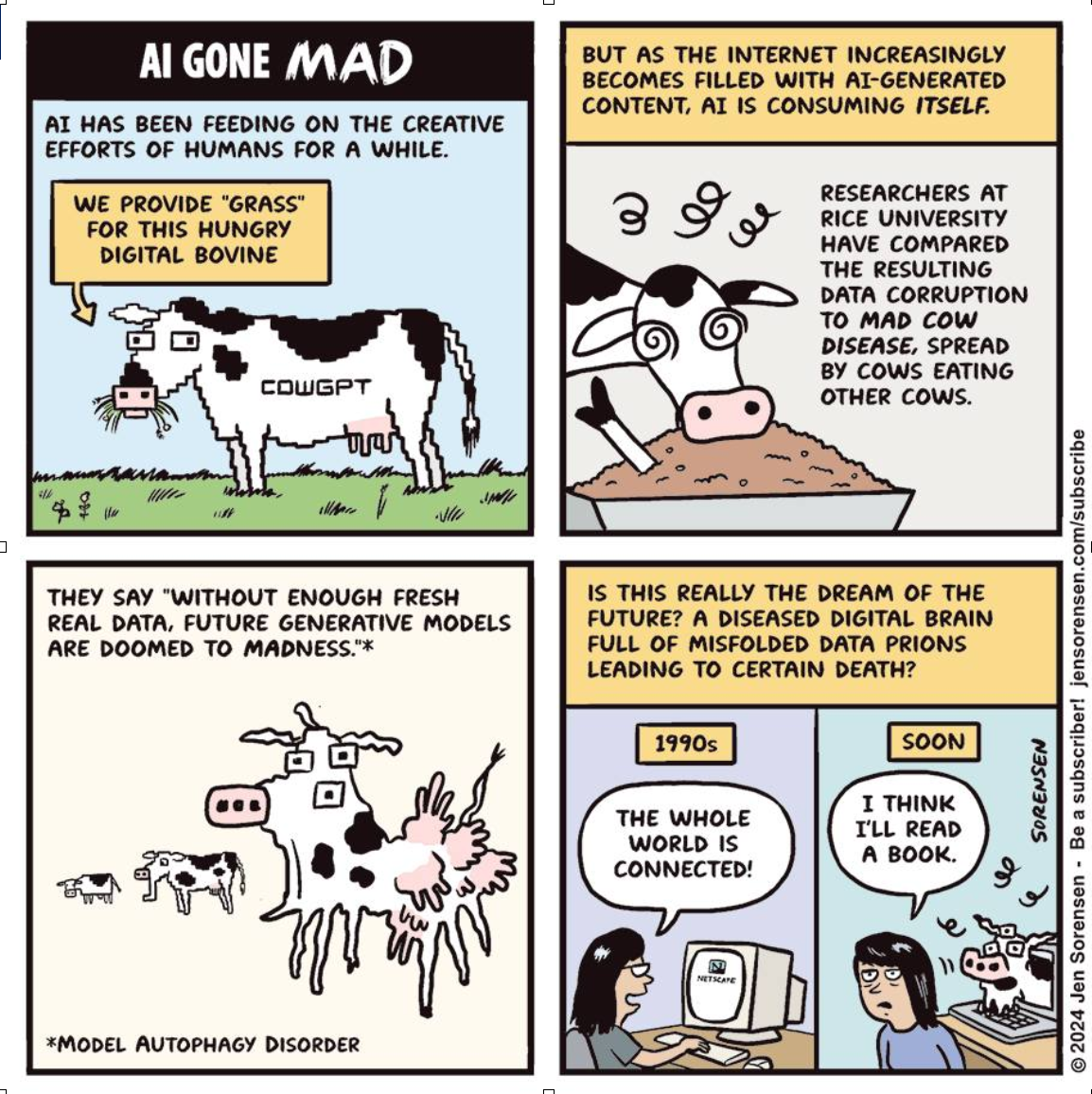 
|
Self-Consuming Generative Models Go MAD
Sina Alemohammad, Josue Casco-Rodriguez, Lorenzo Luzi, Ahmed Imtiaz Humayun, Hossein Babaie, Daniel Lejeune Ali Siahkoohi, Richard Baraniuk ICLR, 2024 / arXiv We study the phenomenon of training new generative models with synthetic data from previous generative models. Our primary conclusion is that without enough fresh real data in each generation of a self-consuming or autophagous loop, future generative models are doomed to have their quality (precision) or diversity (recall) progressively decrease. |
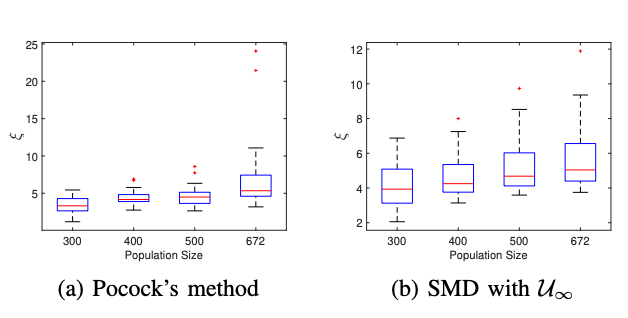 
|
Covariate Balancing Methods for Randomized Controlled Trials Are Not Adversarially Robust
Hossein Babaie, Sina Alemohammad, Richard Baraniuk IEEE Transactions on Neural Networks and Learning Systems, Volume: 35, Issue: 4, 2024 / arXiv We show that commonly used covariate balancing techniques in randomized trials can be vulnerable to adversarial manipulation, undermining their reliability in worst-case scenarios. |
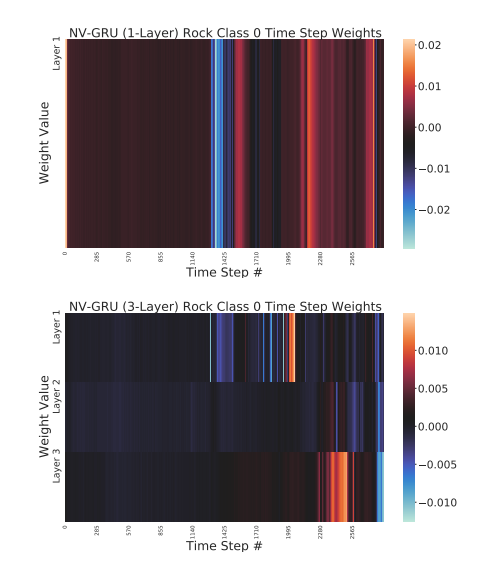 
|
NeuroView-RNN: It’s About Time
CJ Barberan, Sina Alemohammad, Naiming Liu, Richard Baraniuk FAccT, 2022 / arXiv We introduce a framework that enhances RNN interpretability by quantifying how each hidden state temporally contributes to model decisions, offering a clear, time-resolved understanding of sequence processing. |
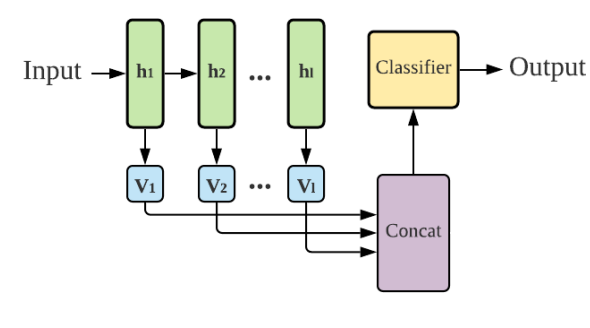 
|
NFT-K: Non-Fungible Tangent Kernels
Sina Alemohammad, Hossein Babaie, CJ Barberan, Naiming Liu, Lorenzo Luzi, Blake Mason, Richard Baraniuk ICASSP, 2022 / arXiv We propose NFT‑K, a novel neural architecture that models each layer of a deep network with its own individual tangent kernel—enhancing interpretability and performance over single-kernel approaches. |
 
|
Wearing a mask: Compressed representations of variable-length sequences using recurrent neural tangent kernels
Sina Alemohammad, Hossein Babaie, Randall Balestriero, Matt Y. Cheung, Ahmed Imtiaz Humayun, Daniel Lejeune, Naiming Liu, Lorenzo Luzi, Jasper Tan, Zichao (Jack) Wang, Richard Baraniuk ICASSP, 2021 / arXiv We introduce a method for compressing variable-length sequences by combining recurrent neural tangent kernels with learned masks, enabling efficient and structured representations of long, complex data streams. |
 
|
Enhanced Recurrent Neural Tangent Kernels for Non-Time-Series Data
Sina Alemohammad, Randall Balestriero, Zichao (Jack) Wang, Richard Baraniuk arXiv, 2021 / arXiv We extend infinite-width recurrent neural tangent kernels to bidirectional and pooled RNN architectures, implement a fast GPU version, and demonstrate superior performance on 90 non‑time‑series UCI datasets. |
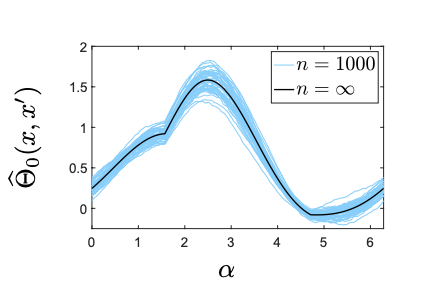 
|
The Recurrent Neural Tangent Kernel
Sina Alemohammad, Zichao (Jack) Wang, Randall Balestriero, Richard Baraniuk ICLR, 2021 / arXiv We introduce the Recurrent Neural Tangent Kernel (RNTK), a kernel derived from the infinite-width limit of recurrent neural networks, which captures variable-length sequence inputs and provides improved performance on synthetic and real-world datasets. |
|
The website template is borrowed from Jon Barron. |